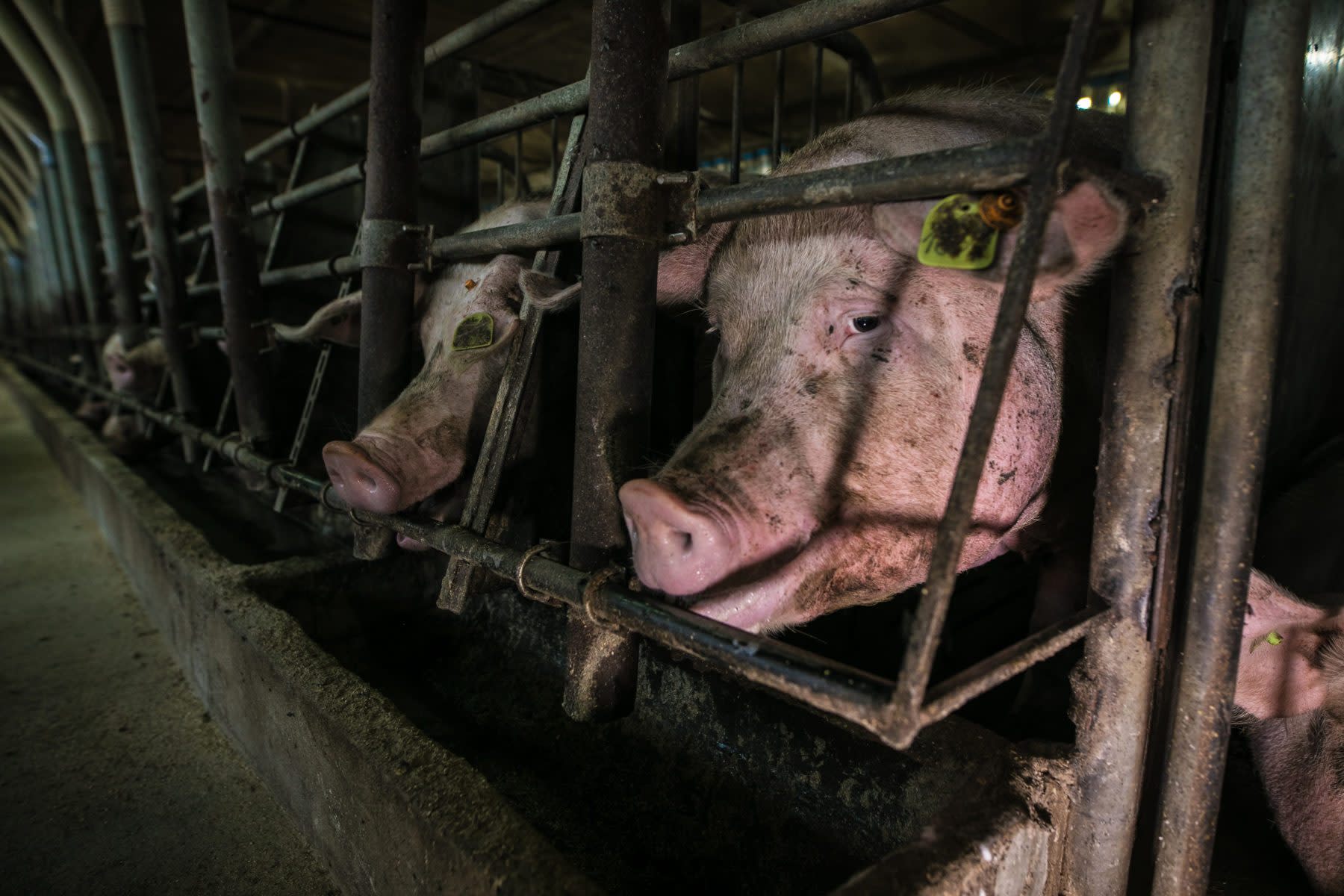The Hidden Horrors of Factory Farm Animal Cruelty: Unveiling the truth Behind Industrial Agriculture

In the heart of modern agriculture lies a grim reality: factory farming. While it sustains our ever-growing demand for meat, dairy, and eggs, it also conceals a dark underbelly of animal suffering and environmental degradation. The term “factory farm animal cruelty” evokes images of overcrowded enclosures, routine mutilations, and relentless exploitation. In Dairy industry animal cruelty article, we delve deep into the multifaceted aspects of factory farming, shedding light on its ethical implications, environmental consequences, and potential alternatives. Factory farming, also known as industrial agriculture or concentrated animal feeding operations (CAFOs), epitomizes efficiency in meat, dairy, and egg production. Animals are confined in densely packed enclosures, often deprived of natural behaviors and subjected to intensive breeding, feeding, and medication regimes. From battery cages for egg-laying hens to gestation crates for sows, these facilities prioritize profit margins over animal welfare.
The inherent cruelty of factory farming manifests in various forms. Chickens, bred for rapid growth, often suffer from skeletal disorders and heart failure due to their unnaturally accelerated development. Pigs confined in gestation crates endure psychological distress and physical ailments, unable to even turn around for the duration of their pregnancies. Calves raised for veal are torn from their mothers shortly after birth, confined in tiny crates, and deprived of social interaction. Moreover, routine practices such as debeaking, tail docking, and castration are performed without anesthesia to mitigate aggression and prevent injuries in overcrowded environments. These procedures inflict immense pain and distress on animals, highlighting the callous disregard for their sentience. Factory farming is not only detrimental to animal welfare but also poses significant environmental challenges. The concentration of large numbers of animals in confined spaces results in vast quantities of waste, leading to pollution of air, soil, and water. Manure lagoons, common in industrial livestock operations, emit greenhouse gases such as methane and nitrous oxide, contributing to climate change.
Furthermore, the overuse of antibiotics in livestock production promotes the emergence of antibiotic-resistant bacteria, posing a threat to human health. Deforestation to create space for feed crops and grazing lands further exacerbates habitat loss and biodiversity decline, threatening fragile ecosystems. The ethical implications of factory farming extend beyond animal welfare and environmental concerns. As sentient beings capable of experiencing pain, fear, and pleasure, farm animals deserve moral consideration. The utilitarian argument against factory farming emphasizes the inherent suffering inflicted on animals outweighs the benefits derived from their exploitation. Moreover, ethical veganism, rooted in the principle of non-violence towards animals, advocates for a lifestyle free from animal products to align with values of compassion and justice. By rejecting the consumption of animal products, individuals can challenge the pervasive culture of exploitation perpetuated by industrial agriculture. Transitioning towards sustainable and humane agricultural practices is imperative to mitigate the adverse impacts of factory farming. Agroecology, regenerative farming, and pasture-based systems offer viable alternatives that prioritize animal welfare, environmental stewardship, and social equity.
Agroecological farming integrates ecological principles into agricultural systems, emphasizing biodiversity, soil health, and resource conservation. Regenerative farming focuses on restoring degraded ecosystems and enhancing soil fertility through holistic management practices. Pasture-based systems allow animals to express natural behaviors, graze on open pastures, and contribute to ecosystem services such as soil carbon sequestration and biodiversity conservation. Additionally, plant-based alternatives to meat, dairy, and eggs offer sustainable and cruelty-free options for consumers concerned about animal welfare and environmental sustainability. Factory farm animal cruelty epitomizes the moral and ecological dilemmas inherent in industrial agriculture. From the confinement of sentient beings in crowded and unsanitary conditions to the pollution of natural resources and degradation of ecosystems, the repercussions of factory farming are far-reaching. As consumers, advocates, and stewards of the planet, we have the power to effect change through conscious consumption choices, support for sustainable agriculture, and advocacy for policy reforms. By challenging the status quo of factory farming and embracing alternatives that prioritize animal welfare, environmental sustainability, and social justice, we can pave the way towards a more compassionate and resilient food system for future generations.
Leave a Comment